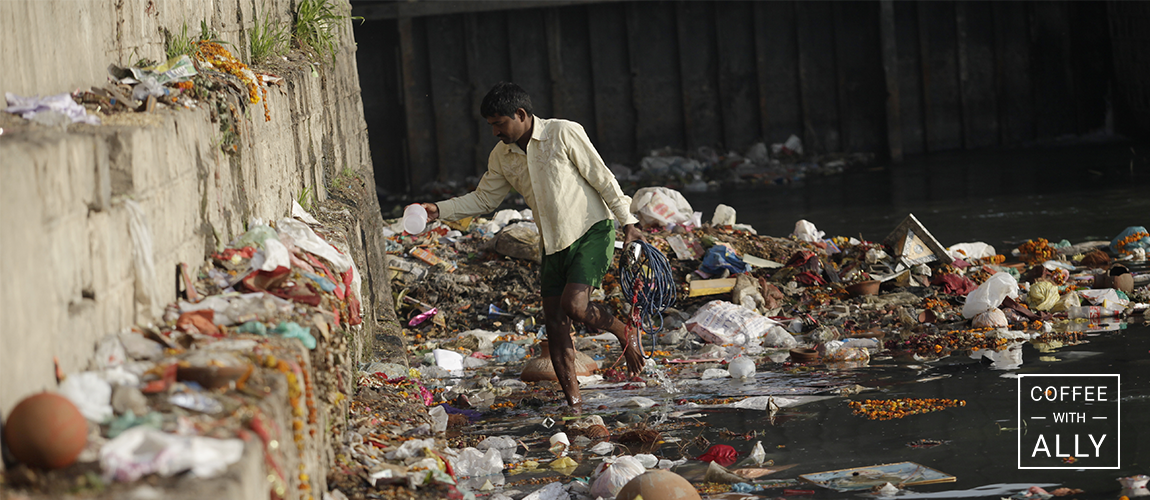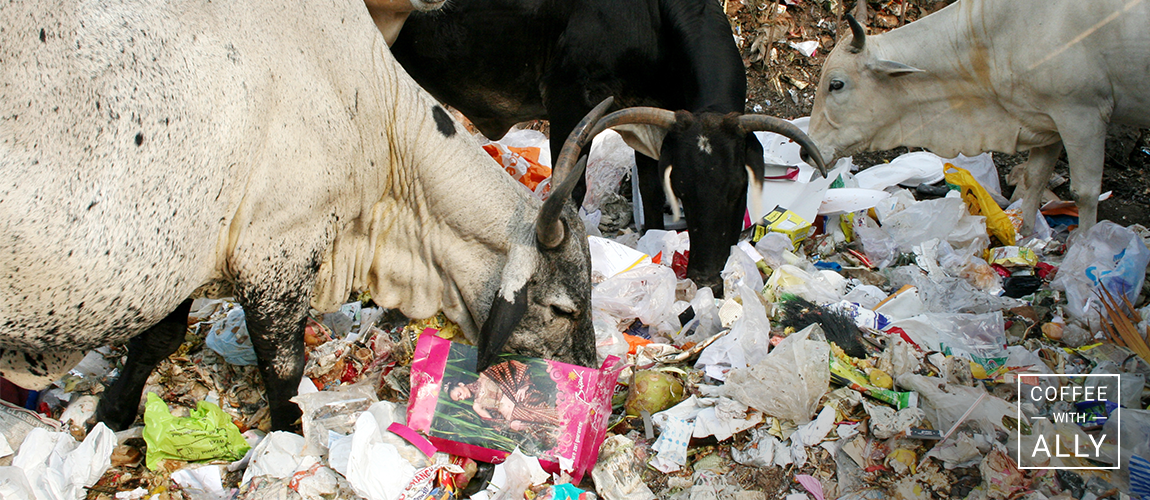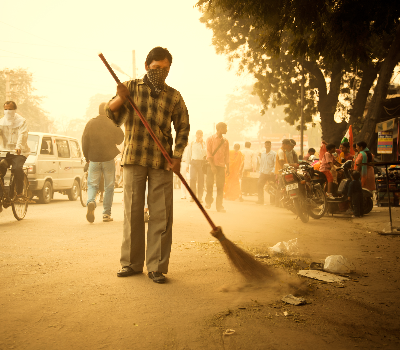
What I Hate about India
October 09, 2018
While no one likes to make mistakes, people tend to learn the most through failure.
The satisfaction of getting a job done on the first try is hard to beat, but it’s a fleeting sensation, unlike the sting of screwing up. That lasts, that lingers, that leaves a mark on our mind, that’s why we learn not to do it again.
Just as a bitter cup of coffee leaves a nasty aftertaste, a bad business experience can really sour your career aspirations. We’ve all had a deal go wrong, we’ve all had a trip that didn’t pan out, we’ve all gotten taken advantage of, we’ve all questioned why we even bother.
And if you’re reading this, then you’re probably looking for an answer.
Well, I’ve got it for you: Because you can do better next time.
You shouldn’t give up drinking coffee because of a bad cup, and you shouldn’t shut down your company just because of a missed contract. I’m not too proud to admit I’ve made mistakes before, heck, that’s why I’m writing this blog: To show you that these things happen, that you can still succeed down the road even if you trip on a pebble, that you can get ahead faster by learning from the missteps I made on my way here.
Like what happened to me in India.
I know, I know, my last blog was nothing but praise for India, but that was only half the story. Like I said at the end, if you don’t know the rules of the game, experienced players are going to use that against you, they sure did to me.

Quite honestly, I was caught off guard the second I touched down. I had no idea India would be so loud, so crowded, so dirty. The air was saturated with the sound of car horns and scent of spices, and the more I looked around, the more I could see how deeply the country’s history is still effecting its people. The British may be gone, but the consequences of colonization are impossible to ignore. The old architecture is falling into ruin and overflowing with the impoverished, while cleaner modern buildings are occupied by the wealthy elite.
It’s true that all societies have a division between the haves and the have nots, but the gap between the rich and poor in India is so stark that it’s an aspect of their very culture. Those of the higher caste consider those of the lower caste unclean, and if so much as the shadow of a lower caste person falls upon them, then the higher caste person must purify themselves. It’s so important for wealthy people to avoid being exposed to "impure" people that they hire private security and drivers to escort them around for protection.
While the system seems rather extreme to me, I must admit, I took part in it.
The first taxi driver my family and I met made a strong impression on us, and we in turn made full use of his services during our stay. It all started when he instantly recognized we were new to the area, and decided to share some local wisdom with us.
“When there is a car accident in America, the first thing people do is exchange insurance information. When there is a car accident in India, the first thing people do is ask why the other person didn’t honk.”
That little story of his really set the bar for our expectations, as did his following business pitch. The driver explained how having a personal chauffer was invaluable to tourists and visiting business folk like ourselves, then offered his exclusive services. For a surprisingly low price, he would be at our complete beck and call, sleeping in his car outside our building so he could take us anywhere at a moment’s notice. Apparently this is not unusual, drivers like him routinely perform such duties, many of them getting only a few hours’ sleep between busy shifts. I felt a bit guilty to take part in such a system, but after the driver saved us from being taken advantage of at the Gandhi museum, all uneasiness was swept away. You see, the museum is meant to be free, but the security guard attempted to charge my family and I a steep entry fee, which he would’ve received if the driver didn’t come up and defend us. Locals are always on the look out for tourists, we make easy targets for them to exploit, so having a seasoned guide to save you from scammers is essential.
I’m sorry to say this corruption occurs in the entire system, from lowly street vendors to corporate executives, and even government officials. Everyone is out to get as much as they can, even the ones who are already living so much better than their peers. This mentality was embodied by an SME promotor we met during a business lunch, who was not only rigging his business so that his clients could not succeed more than he would allow them, but was also taking advantage of the staff at the venue. Everyone was supposed to serve themselves, but he ordered the staff to bring him food so he didn’t have to move around. It seemed so inhuman, he threw around demands as if he owned these people, yet they complied. I asked one afterwards why they put up with such treatment, and was met with a harrowing answer: if they didn’t obey, that man had the power to ruin their livelihood. He could get their wages garnished for the rest of their lives, or he could elevate them to a better life, it depended on his mood. The best they could do was serve this man who society claimed was superior, hoping that perhaps they could earn his favor.
That wide income gap and strict caste system has instilled a sense of worship between those on the bottom and those on top, especially towards entertainment figures. Crowds of fans gather around the houses of Bollywood stars, marveling at the splendor and throwing flowers and candies whenever those popular people come and go. The homes themselves are most impressive, situated close to the coastline and all, yet the raw sewage being pumped into the ocean isn’t as scenic. It astounds me that anyone would want to live there, but it is considered the best of the best, and Indian’s don’t turn down offers.
I mean that literally.

Anyone who has experience working with India will tell you that they always say “yes,” but anyone who has experience working with India will also tell you that they don’t always honor that answer. Just because they won’t say “no” doesn’t mean they’ll do what they promised, even simple requests will go ignored if not followed up on. Verification is key, I cannot stress that enough to you. Do your homework on every little detail, from the person you keep in contact with all the way to the company they say they work for, because both could be frauds. Talk is cheap and so are business cards, I myself have found out that representatives I’d been in contact with were never actually employed by the companies they claimed to be a part of. Even the translators you hire to assist you in meetings and act as your guide should be thoroughly authenticated before doing business with them, you can’t be too careful. This is a policy I take very seriously, I apply the same rigorous verification standards to the SMEs that join my international trade hub, ExportPortal.com.
I’m sorry if this sounds intimidating, but I promise I’m not trying to scare you off. India truly is an incredible place with lots of opportunity waiting to be seized, they simply have a distinct way of doing business, one that is unforgiving to those unprepared for it. Always remember that business practices different from your own are not necessarily wrong. They are in place for a reason, they are efficient in their own way, and working internationally means you need to be adaptable.
Once you learn the rules of the game, you can start aiming to play in the big leagues.
Sweet Tips from Ally
-Do a thorough background check of representatives and of the companies they claim to work for before doing business with them, let alone travel to their country.
-Hire a well-reviewed and verified translator/guide to assist you during your travels, they are an essential investment that will keep you from getting taken advantage of both in office negotiations and while sightseeing.
-Learn from foreign business practices, analyze what they do and why it works for them. The better you understand how they operate, the better you will be able to work with them, as well as be able to apply aspects of their strategies to your own endeavors.
The satisfaction of getting a job done on the first try is hard to beat, but it’s a fleeting sensation, unlike the sting of screwing up. That lasts, that lingers, that leaves a mark on our mind, that’s why we learn not to do it again.
Just as a bitter cup of coffee leaves a nasty aftertaste, a bad business experience can really sour your career aspirations. We’ve all had a deal go wrong, we’ve all had a trip that didn’t pan out, we’ve all gotten taken advantage of, we’ve all questioned why we even bother.
And if you’re reading this, then you’re probably looking for an answer.
Well, I’ve got it for you: Because you can do better next time.
You shouldn’t give up drinking coffee because of a bad cup, and you shouldn’t shut down your company just because of a missed contract. I’m not too proud to admit I’ve made mistakes before, heck, that’s why I’m writing this blog: To show you that these things happen, that you can still succeed down the road even if you trip on a pebble, that you can get ahead faster by learning from the missteps I made on my way here.
Like what happened to me in India.
I know, I know, my last blog was nothing but praise for India, but that was only half the story. Like I said at the end, if you don’t know the rules of the game, experienced players are going to use that against you, they sure did to me.

Quite honestly, I was caught off guard the second I touched down. I had no idea India would be so loud, so crowded, so dirty. The air was saturated with the sound of car horns and scent of spices, and the more I looked around, the more I could see how deeply the country’s history is still effecting its people. The British may be gone, but the consequences of colonization are impossible to ignore. The old architecture is falling into ruin and overflowing with the impoverished, while cleaner modern buildings are occupied by the wealthy elite.
It’s true that all societies have a division between the haves and the have nots, but the gap between the rich and poor in India is so stark that it’s an aspect of their very culture. Those of the higher caste consider those of the lower caste unclean, and if so much as the shadow of a lower caste person falls upon them, then the higher caste person must purify themselves. It’s so important for wealthy people to avoid being exposed to "impure" people that they hire private security and drivers to escort them around for protection.
While the system seems rather extreme to me, I must admit, I took part in it.
The first taxi driver my family and I met made a strong impression on us, and we in turn made full use of his services during our stay. It all started when he instantly recognized we were new to the area, and decided to share some local wisdom with us.
“When there is a car accident in America, the first thing people do is exchange insurance information. When there is a car accident in India, the first thing people do is ask why the other person didn’t honk.”
That little story of his really set the bar for our expectations, as did his following business pitch. The driver explained how having a personal chauffer was invaluable to tourists and visiting business folk like ourselves, then offered his exclusive services. For a surprisingly low price, he would be at our complete beck and call, sleeping in his car outside our building so he could take us anywhere at a moment’s notice. Apparently this is not unusual, drivers like him routinely perform such duties, many of them getting only a few hours’ sleep between busy shifts. I felt a bit guilty to take part in such a system, but after the driver saved us from being taken advantage of at the Gandhi museum, all uneasiness was swept away. You see, the museum is meant to be free, but the security guard attempted to charge my family and I a steep entry fee, which he would’ve received if the driver didn’t come up and defend us. Locals are always on the look out for tourists, we make easy targets for them to exploit, so having a seasoned guide to save you from scammers is essential.
I’m sorry to say this corruption occurs in the entire system, from lowly street vendors to corporate executives, and even government officials. Everyone is out to get as much as they can, even the ones who are already living so much better than their peers. This mentality was embodied by an SME promotor we met during a business lunch, who was not only rigging his business so that his clients could not succeed more than he would allow them, but was also taking advantage of the staff at the venue. Everyone was supposed to serve themselves, but he ordered the staff to bring him food so he didn’t have to move around. It seemed so inhuman, he threw around demands as if he owned these people, yet they complied. I asked one afterwards why they put up with such treatment, and was met with a harrowing answer: if they didn’t obey, that man had the power to ruin their livelihood. He could get their wages garnished for the rest of their lives, or he could elevate them to a better life, it depended on his mood. The best they could do was serve this man who society claimed was superior, hoping that perhaps they could earn his favor.
That wide income gap and strict caste system has instilled a sense of worship between those on the bottom and those on top, especially towards entertainment figures. Crowds of fans gather around the houses of Bollywood stars, marveling at the splendor and throwing flowers and candies whenever those popular people come and go. The homes themselves are most impressive, situated close to the coastline and all, yet the raw sewage being pumped into the ocean isn’t as scenic. It astounds me that anyone would want to live there, but it is considered the best of the best, and Indian’s don’t turn down offers.
I mean that literally.

Anyone who has experience working with India will tell you that they always say “yes,” but anyone who has experience working with India will also tell you that they don’t always honor that answer. Just because they won’t say “no” doesn’t mean they’ll do what they promised, even simple requests will go ignored if not followed up on. Verification is key, I cannot stress that enough to you. Do your homework on every little detail, from the person you keep in contact with all the way to the company they say they work for, because both could be frauds. Talk is cheap and so are business cards, I myself have found out that representatives I’d been in contact with were never actually employed by the companies they claimed to be a part of. Even the translators you hire to assist you in meetings and act as your guide should be thoroughly authenticated before doing business with them, you can’t be too careful. This is a policy I take very seriously, I apply the same rigorous verification standards to the SMEs that join my international trade hub, ExportPortal.com.
I’m sorry if this sounds intimidating, but I promise I’m not trying to scare you off. India truly is an incredible place with lots of opportunity waiting to be seized, they simply have a distinct way of doing business, one that is unforgiving to those unprepared for it. Always remember that business practices different from your own are not necessarily wrong. They are in place for a reason, they are efficient in their own way, and working internationally means you need to be adaptable.
Once you learn the rules of the game, you can start aiming to play in the big leagues.
Sweet Tips from Ally
-Do a thorough background check of representatives and of the companies they claim to work for before doing business with them, let alone travel to their country.
-Hire a well-reviewed and verified translator/guide to assist you during your travels, they are an essential investment that will keep you from getting taken advantage of both in office negotiations and while sightseeing.
-Learn from foreign business practices, analyze what they do and why it works for them. The better you understand how they operate, the better you will be able to work with them, as well as be able to apply aspects of their strategies to your own endeavors.

Would you like a
coffee with ally?
With a fresh brew and some pastries, sit down with Ally
and get tips on how to grow your business!
Start a conversation
and get tips on how to grow your business!
















start a conversation